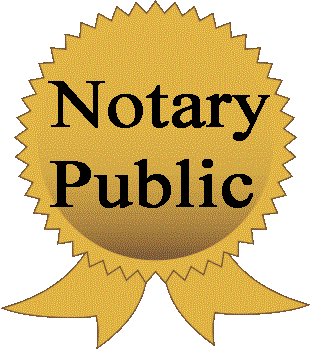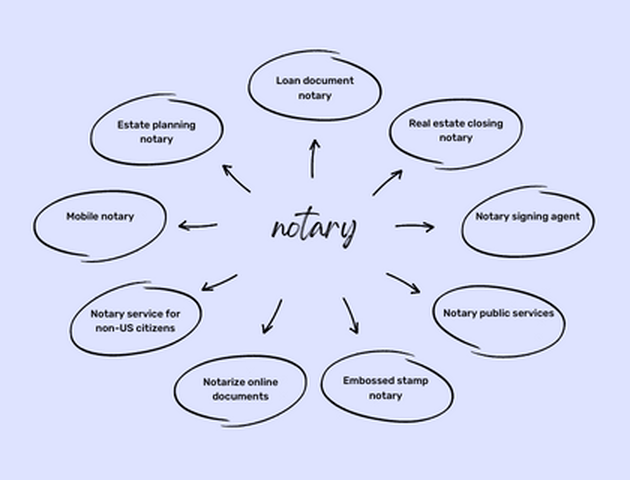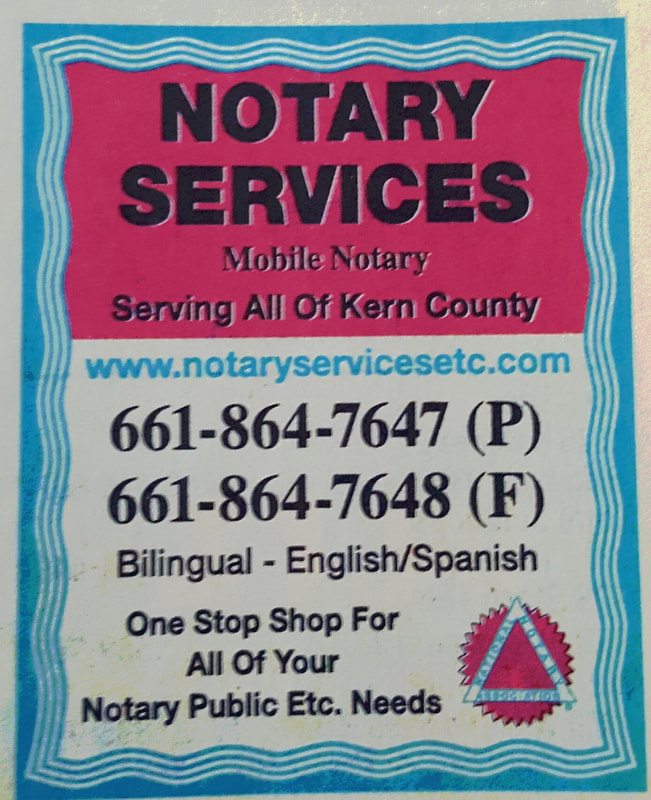|
Here are some key benefits of utilizing their services:
Versatile: This means you can ask the Notary to print something for you before the signing meeting. Print & Go! Just email the notary with the documents, you need printed. Are you in a different city but your signer is where the notary provides services? No Problem, email the notary your specific instructions & the notary will accommodate! Some notaries are printing experts it sorta comes with the territory! Are there separate signers with different schedules for one transaction? no problem, notaries can arrange to meet the signers at their discretion, those are known as split signings! Convenience: This means they can meet clients at their preferred location, whether it’s a home, work office, library , restaurants, hospitals, Jail, Detention Centers, or any other convenient spot, saving time and hassle for all parties involved. Flexibility: Notaries understand the time-sensitive nature of transactions. They are often available outside of regular business hours, including evenings and weekends, accommodating the schedules of busy individuals. Accuracy: Precision is crucial when dealing with legal documents, especially those related to loans. Loan signing agents ensure that all signatures and notarizations are executed correctly the first time, minimizing the risk of delays or errors in the loan approval process. Compliance: Staying compliant with state and federal regulations is essential. Loan signing agents are notaries first and foremost who are regulated by the Secretary of State and are well-versed in these regulations, ensuring that all notarizations adhere to legal requirements, mitigating the risk of potential legal issues down the line. By entrusting the notarization process to a qualified notary loan signing agent in Kern County, California, clients, businesses, borrowers, lenders , title & escrow companies can have confidence that their documents are in capable hands. This peace of mind is invaluable during what can often be a stressful and high-stakes transaction. In conclusion, the benefits of utilizing a mobile notary in Kern County, California are extensive. From expertise, convenience, as well as accuracy and compliance, these specialized professionals play a crucial role in facilitating smooth and successful transactions for all parties involved. If you’re looking for a mobile notary in Kern County, California, consider reaching out to Susana Mobile Notary to streamline your notarization process further!
0 Comments
You might have heard that Notaries and the practice of law are separate things
First off, a Notary Public is not a lawyer. In fact, giving legal advice is a big no-no for Notaries unless they are also an attorney but that's a different topic! and for good reason. They can’t act as legal advisors because, without the proper qualifications, it’s like walking a tightrope without a safety net – a serious legal faux pas. giving legal advice is off-limits. Sometimes, Notary Publics ARE lawyers but not at Notary Services etc in Kern County , California. It is important not to expect them to be your legal counsel, guiding you through the legal maze. So, what’s the big deal? Well, it’s called the Unauthorized Practice of Law, and it’s a serious deal-breaker. For instance, a loan signing agent in Kern County, California can’t guide you on legal matters or tweak the fine print on your documents. Here’s the scoop: a General Notary can’t advise you on filling out those forms or make changes to what you’ve already written down. They can draft and edit legal documents, but it’s all under the watchful eye of a licensed attorney. Ignorance is not bliss when it comes to the law. If you’re looking for a mobile notary in California, remember that each state might have its own set of rules. If you're ever in doubt, play it safe and ask Susana these questions yourself! I'm here to help clarify facts! What is a Mesothelioma lawsuit?
It allow victims and their families to pursue financial compensation from negligent manufacturers of asbestos-containing products. Mesothelioma compensation is a financial award paid to patients and family members affected by mesothelioma cancer. What Records Should You Gather?
Even if the case moves toward a settlement, which means the case will not go to trial, proof of exposure is also needed. The most common sources of asbestos exposure include:
If you or anyone you know received several #affidavits from your attorney to have #notarized give me a call I can help you Retaining a Notary who has experience in different areas. although it may not be necessary , there are advantages in hiring a professional who has experience in different types of transactions. Most notaries will display their qualifications on their website or social media profiles, so look for specializations that indicate knowledge base. For example if you need someone with a legal background, seek a notary that focuses in law; when you need a notary with an in-depth understanding of real estate transactions, hire a Loan Signing Agent who has experience with mortgage loan signings ask about their experience & or hire a multifaceted notary who is experienced in all areas! What are the examples of Specialty Notary Work?
A mobile notary that travels onsite to execute documents is allowed to levy charges separate from the fees for actual services. These “convenience” fees are intended to cover the costs of transportation and can be as high as $150 in addition to the notary fee. This is why it’s important to ask about fees beforehand hiring a notary. Notary Service provider since 2008 AAA offers Automotive services, insurance, banking, travel, DMV & Notary Services on a membership basis.
UPS & Pac N Ship Stores Offer shipping, packaging, printing, shredding, notary services and postal services Mobile Notaries accommodate Notarial Services to individuals and businesses alike at their convenience & place of choosing. From mortgages, estate planning, affidavits, prenups, and sworn statements, are a wide variety of documents that will fail to hold any legal weight if a notary doesn’t verify your signature. Using a notary at a brick & mortar store may seem like your easiest option, but there are other reasons to choose a mobile notary instead. You may be considering two defining factors if you’re trying to find a notary online, location and their validity. Knowing where to find a notary is only half the challenge, reaching them and finding the time to do so is the other. Using a Notary Service at a brick & mortar store, at a quick glance may seem easy to understand and use. Finding a store offering the service, taking your documents there, providing ID, and completing the process. However, below the surface, there is a degree of inconvenience that could be frustrating to people who frequently need notary services. On the other hand, using a mobile notary is just as valid but not as inconvenient to you, no need to reschedule work or travel too far to have your documents notarized. What’s the difference? a mobile notary will ensure that your legal documents are signed in the presence of an impartial third-party witness, mobile notaries have an extra level of training and experience to handle sensitive documents such as mortgage loan documents for example loan modifications, those require the notary to be certified as a Notary Signing Agent with additional Errors and Omissions insurance above the minimum coverage required by the California Secretary of State. Notary Service at a store, you travel to them, stand in line (this can be an inconvinicnece when you are in a rush) & sometimes schedule an appointment convenient to them, then run the risk of your documents not being notarized properly or rejection by the receiving entity, due to lack of experience, knowledge or certification, mistakes can happen. So Which Type of Notary is Better? The most important element of notarizing documents is that you find a suitable person. Although UPS, Shipping Stores and AAA provide such persons, their services aren’t always convenient So, if you would rather avoid traveling to a big box store every time you need to sign a document, using a traveling notary works in your favor. You remove the associated costs, potential time wasters, and avoid the frustration of traveling back and forth on someone else’s schedule. And if you forget your ID on your way to your appointment – you’re out of luck. But the biggest benefit is the flexibility that comes with arranging time & location at your convenience If you find a dependable notary, they’ll arrive at your chosen location outside of office hours including Sundays! During stress-filled processes such as completing documents when buying or selling a house, this can reduce the strain on your work-life balance. What ever your decision should be what works best for you Thank you for visiting my blog page. Text me if you, or someone you know Is looking for a notary.
Myth One: A Notary Can Give Legal Advice A notary cannot give legal advice. Although there are notaries who are also paralegals people tend to think that paralegals can give legal advice. In fact, both notaries and paralegal are prevented from giving advice under any circumstance. The only exception is if they were both also an attorney who is acting in a legal capacity for the client. A Notary CAN provide you with legal information which is open and available to the public by a simple online search. Myth TWO: Drafting Documents Just as a notary cannot give legal advice, a notary cannot help the person they’re signing for draft documents. The only time that they are allowed to do so is if they are a paralegal, working under the supervision of a licensed attorney. A Notary CAN draft a document only if the notary is also a legal Document assistant and working in the capacity of an LDA. You can find a Document Legal Assistant in California on this site. https://calda.org/ Myth THREE: Provides Services to US Citizens A notary provides services to the public, not just US citizens. Being able to do this makes sense because non-citizens often require notarizations for documents related to immigration and citizenship. When notarizing for a non-US citizen, the notary is still required to follow their state procedures to verify the identity of the signer Myth FOUR A Notary’s Job Is Easy There is so much more to it than show up, stamp, and leave. Training to become a notary is involved as well as specific training to handle mortgage loan documents. Not only does a notary need to be versed in the type of paperwork they are handling, but also the type of notarization that is required. There are different types of notarizations and specific language for the notarization that must be correct on the document. Also, there is pressure placed on notaries to meet timelines, and have legal responsibilities (and repercussions) should they fail to follow state-mandated protocol. Myth FIVE: A Understanding the details of the documents they are notarizing. A notary must verify that the client meets the requirements to sign the document and that the notarial language on the document is correct. Beyond that, a notary is under no obligation to understand or explain the specifics of a document. If the client is uncomfortable signing a document, the notary has a good faith obligation to not notarize the document and refer the client to the document issuer for clarification. Myth #SIX: A Notary from a foreign country is the same as a Notary Public in the USA The US is the only country in which notaries do not need to be Attorneys, to provide notary services, Foreign Notaries from different countries offer advanced legal services, services that surpass those of a notary public in the United States. Unfortunately, this causes confusion for Spanish speakers in the US, and some unscrupulous companies draw in people with the title and then charge them an exorbitant fee for simple notary services. More information can be found in the National Notary Association’s article, Important Differences Between Notaries & “Notarios“. Myth SEVEN: A Notary Must Provide Services Some people believe that a notary is required to provide services when contracted to do so. While is it rare for a notary to refuse services, some of the most common reasons that a notary can — and sometimes, legally must — refuse to notarize something. Is if they suspect fraud, if they cannot identify the signer, or the signer is not willing or is being coerced. A notary is providing signing services for perfectly legitimate legal documents 99.9% of the time. But there are those very rare occasions where something just doesn’t look or feel right. Sometimes it goes beyond just a feeling, and the fraud is obvious. The primary job of a notary is to verify the identity of the person who will be signing the document. If they are unable to do so, whether because the person hasn’t brought valid identification or the notary signing agent suspects that the identification isn’t authentic, then they must refuse to provide the notarization. Notaries see a lot of interactions between people. In general, the interactions are between people who have the same goal and are entering into an agreement willingly. But if the notary believes that a particular signer is being coerced into signing, the notary must refuse to provide notarization. Myth EIGHT: A Notary can help complete Immigration Documents. Just like the myth where a notary can give legal advice, there is also a misconception that a Notary CAN help fill out Immigration Documents, the only time a notary can fill out Immigration Documents is if the Notary is also an Immigration Specialist Consultant the California Secretary of State can help you find an Immigration consultant on their website. https://www.sos.ca.gov/business-programs/immigration-consultants Myth NINE: Notaries Only Work Normal Business Hours While the bank might only be open to offer notary services during normal business hours, that’s just not the case for most notary signing agents. Most notaries work independently and offer flexible hours to accommodate a wide range of clients. Many mobile notaries offer service well beyond business hours, including weekends. Myth TEN: Notarizing a Document Makes It Legal No, a notarized document simply means that the person who signed the document was verified by the notary to be that person. It means that the notary was presented with the proper identification and verified the signer’s identity and that the document was not signed under duress. A notarization alone does not make a document legal or binding. When something isn’t completely understood, it’s fertile ground for myths and misconceptions. I provide notary services to all companies, attorney’s mortgage companies, lenders, people who need the services of the notary to finalize their paperwork. I am happy to have the opportunity to provide some clarification. How can I assist your company and its document signing needs? Susana Landa Notary Service Provider serving the Kern County area. Thank You A power of attorney (POA) gives someone you name the authority to handle legal or financial matters for you under specific circumstances. When you create a POA, you are called the principal, and the person you choose to act for you is called your attorney-in-fact or your agent.
|
Archives
May 2024
Categories |




 RSS Feed
RSS Feed